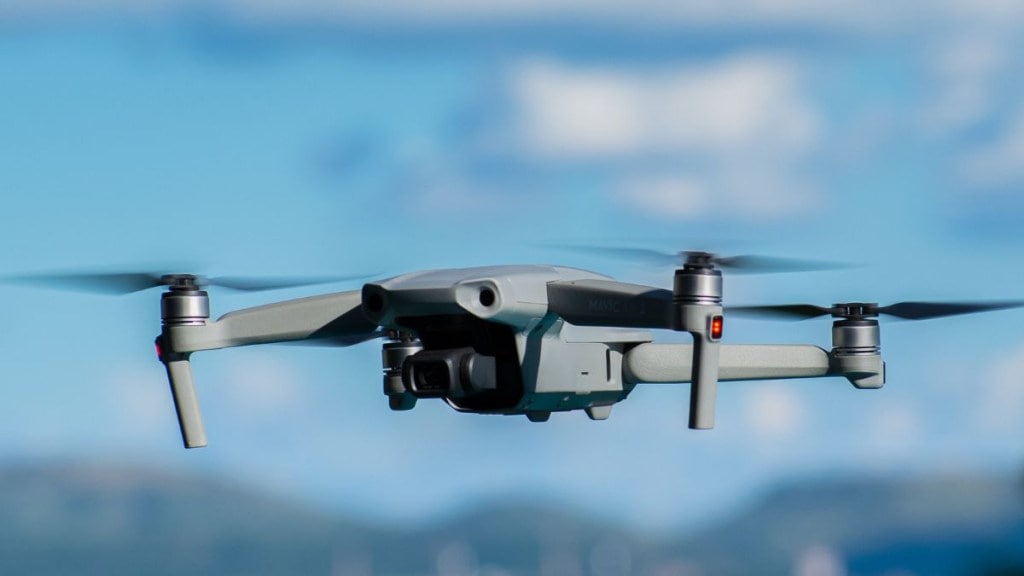Imagine receiving your next online shopping parcel in a drone. Sounds far-fetched? With the pace at which quick commerce is growing in urban centres, drone deliveries may soon become a reality.
According to industry predictions, by 2027, around 30% of all quick commerce deliveries in major cities will be conducted by drones.
This is because drone deliveries offer massive benefits to quick commerce businesses. “For quick commerce players, drones can cut delivery times by up to 50%, slashing costs by 30%,” Rohan Dani, investment professional, BlackSoil told Fe.
As per analysts, the operating costs for a drone delivery service are 40% to 70% lower than a vehicle delivery service model.
Many logistics players such as Ecom Express, Shiprocket are experimenting with drone deliveries by partnering with drone startups that offer drone-as-a-service.
The way drone deliveries work is simple. These drone startups set up sky pods in residential societies where the drone, carrying up to 10 kg parcel, lands. A delivery executive, often called a skywalker, is stationed there to collect those parcels. She or he then delivers them to customers’ houses.
For instance, drone startup, Skye Air, has partnered with around four logistics companies to take their packages to residential societies in Gurugram. The startup has set up sky pods in over 70 residential societies, which are currently mapped. Out of these, three societies are active currently, where around over 1,000 packages per day are being facilitated by drones. The startup plans to scale it to 10,000+ packages per day in the National Capital Region with 100+ societies by the end of this year.
“The goal of the company is to make last mile logistics faster, more sustainable, more efficient and cost-effective moving forward, every package that we deliver,” Ankit Kumar, founder and CEO, Skye Air Mobility said. Every parcel delivered via drone saves around 520 grams of carbon emission. This means for 1,000 shipments a day, we can save around 80 tons of carbon emission.
Kumar added that the current shift to quick commerce, with major players like Flipkart and JioMart also entering the segment, will boost drone deliveries like never before.
Additionally, civil aviation ministry is expected to unveil a set of measures, which would make drones mainstream faster. Already, drones are allowed for services like vaccine delivery, inspection of oil pipelines and power transmission lines, anti-locust operations, agricultural spraying, survey of mines, and land mapping.
Logistics unicorn Shiprocket began drone delivery trials in August 2023 and is currently facilitating more than 5,000 deliveries per month in Gurugram. “These trials are helping us gather valuable data and refine our delivery processes to ensure efficiency and reliability,” Saahil Goel, MD and CEO, Shiprocket said.
The firm plans to scale the number of deliveries and expand to more locations in the near future. “The expansion will depend on the success of our current trials, regulatory approvals, and technological advancements,” he added.
Logistics startup Ecom Express sees stronger potential for drones in longer-distance deliveries. The firm is testing out drones for same-day delivery (SDD) and next-day delivery (NDD) services. “By leveraging drone technology, we aim to enhance delivery speed, improve efficiency, and reduce carbon emissions,” Vishwachetan Nadamani, chief operating officer, Ecom Express said.
Currently, Ecom Express conducts approximately 150 to 200 drone deliveries per day as part of these trials. Beauty, personal care, medicine, fashion are some of the categories that are being delivered. After successfully completing the pilot phase, the company aims to extend drone delivery operations to cover more pin codes in Gurugram and then expand to other metropolitan cities like Bengaluru and Chandigarh.
Garuda Aerospace is another startup that plans to deploy close to 6,000-8,000 drones this year which will be capable of agri and logistics services across 400 districts.
